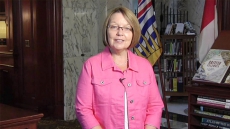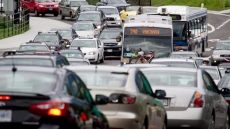TORONTO — Students attending private high schools do better academically than their public schools counterparts because of socio-economic factors and peers who tend to have university-educated parents, according to a Statistics Canada study released Tuesday.
School resources and practices play little or no role in the differences, the study concludes.
"Compared with public school students, higher percentages of private school students lived in two-parent families with both biological parents; their total parental income was higher; and they tended to live in homes with more books and computers," the researchers state.
Considered the first of its kind, the researchers sought to look at both the quality of private schools — attended by about six per cent of Canada's student population — and the students they attract to find out what accounted for the well documented differences in academic achievement.
According to the findings, private high school students score significantly higher on reading, mathematics, and science assessments at age 15. They also have higher levels of educational attainment by age 23.
Data show Quebec has the highest proportion of students in private schools — about one in five. By contrast, the Atlantic provinces have fewer than one in 100. As a result, the researchers looked at students in six provinces: Quebec, Ontario Manitoba, Saskatchewan, Alberta and British Columbia.
While the research by StatsCan's Marc Frenette and Ping Ching Winnie Chan found that the province in which private schools are located makes a significant difference in terms of academic outcomes at the high-school level, it had no impact on achievement at the post-secondary level.
"By accounting for province-fixed effects and student socio-economic characteristics first, the remaining gap in academic performance between private and public school students can be roughly interpreted as the estimated marginal impact of private school attendance," the authors state.
The researchers focused on about 7,000 students born in 1984 attending almost 1,180 schools. They relied on a review of current and recent literature, national and international surveys and questionnaires, and student tests.
"This study advances the literature by using a data set that contains information not only on students and their parents (including aspects of their home life), but also on school resources and practices, and province of school attendance," the study states.
Sample sizes did not allow for a breakdown of results by type of private school, many of which are religious based.
However, one important question remains unanswered, the study states: Does the academic advantage the private school students enjoy continue into the labour market?
"The higher rates of post-secondary attendance among private high school students may translate to higher lifetime earnings," the study notes.
"This effect may be amplified through peers: A social network of gainfully employed friends may improve an individual’s chances of securing a well-paying job."






